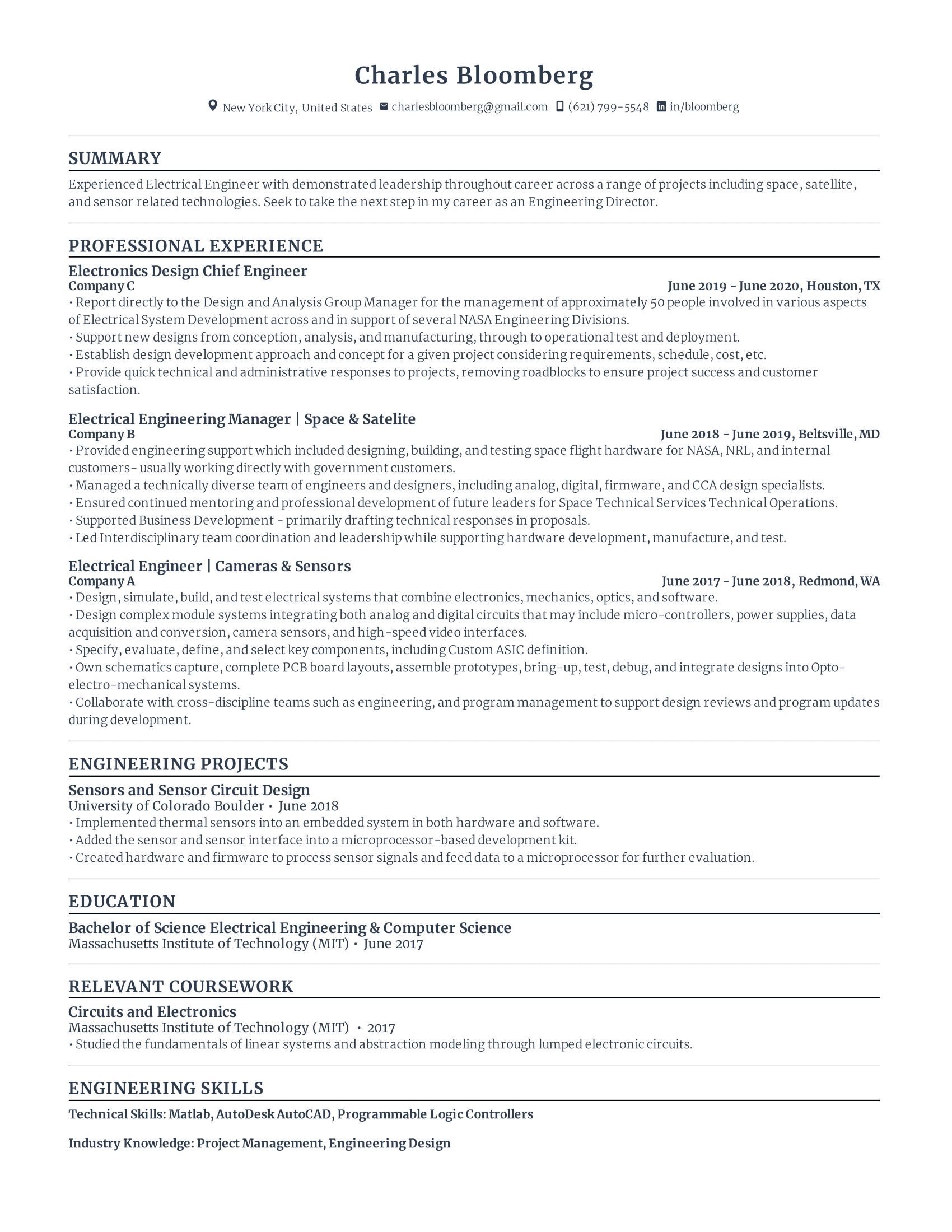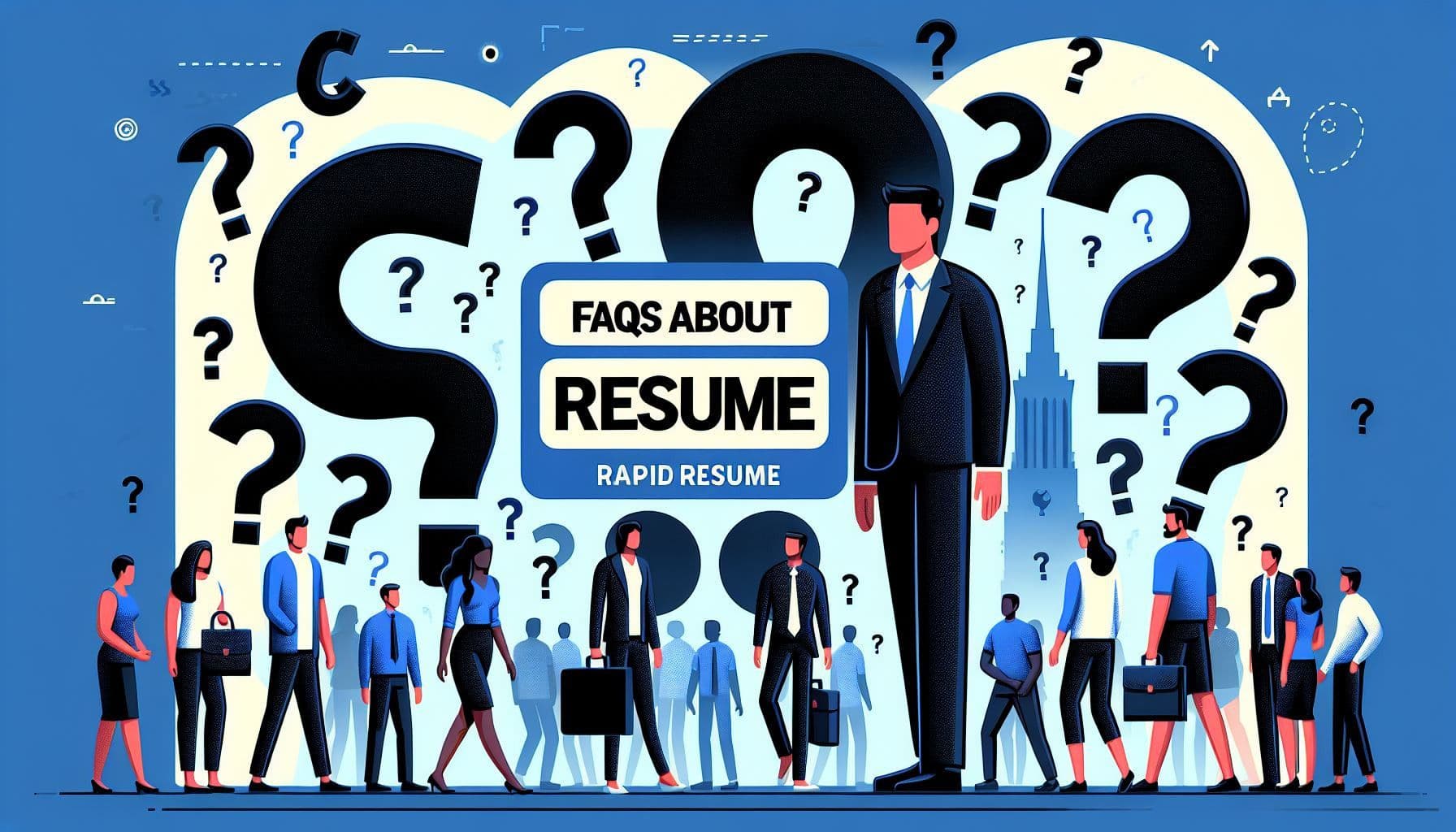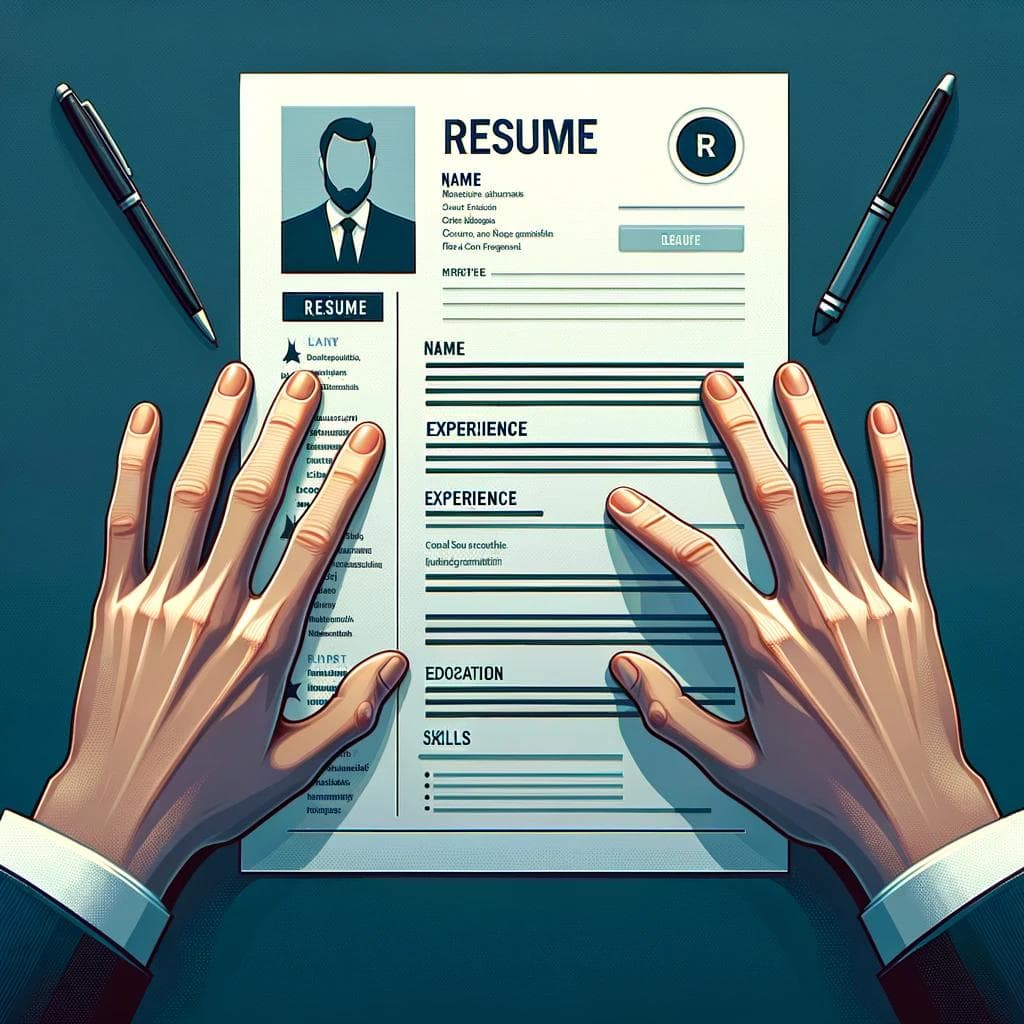Re su me (or résumé) is a summary of personal information, educational background, and achievements, along with skills and qualities in the workplace, as well as the candidate's or job seeker's educational history.All the information provided will help recruiters quickly understand what skills and experiences you have, especially in assessing whether you are suitable for the job criteria they are looking for in candidates, and thus, decide whether you will be invited for an interview or not.The resume is the typical means to convince employers to choose the most suitable candidate for them. Therefore, you need to demonstrate your skills, experiences, and career goals in the most impressive way in the resume, but at the same time, it needs to be concise and succinct. Always bear in mind that the objective of the re su me is to show the employer that you are a worthy candidate for the job and that your experience will bring value to the company.
First and foremost, a resume must be concise and neat but still fully and accurately state the things that the employers need to visualize, such as your person, characteristics, qualifications, and abilities. You can create and design a complete resume on your own or go online for a sample job application as well. However, no matter the method you choose, your Re su me must include all of the following sections: Let's review the following factors to see if you really know how to create a stand-out resume and distinguish yourself from the crowd.
Let's review the following factors to see if you really know how to create a stand-out resume and distinguish yourself from the crowd.

Why Is A Resume Important?
Despite the fact that recruiters actually spend very little time, sometimes only a few seconds, looking at your resume, it is still the first thing they know about your presence. You need to make the best first impression with them. That's why a quality resume is considered the most important step in the job application process. Without it, you can't expect to be invited to the next interview. "These are the important steps you need to know If you want to create a standout resume in 2024."You might also wonder if you can rely on your LinkedIn profile instead of writing a resume. However, the answer is quite blunt, "No!". Most recruiters still expect you to submit a resume, even if they have already looked at your LinkedIn profile.While it cannot be denied that LinkedIn has many benefits, a re su me also has a clear advantage. Your LinkedIn profile is often an overview of your career, but a resume gives you the opportunity to tailor the career story to a specific role or company.Types of Resumes
A common misconception is that there's only one way to write a resume. In reality, there are various resume formats, each with its own strengths and weaknesses. Depending on your specific skills or work history, one format may be more suitable to highlight your qualifications than another.For reference, there are four types of resumes, and they are#1: Chronological Resume
The chronological resume opens with an introduction and then provides an overview of your career history in reverse chronological order (meaning your most recent positions are listed at the top). This type of resume is suitable for seasoned professionals with extensive experience and is also the most common type of resume used by job seekers today.#2: Functional Resume
Additionally, there's another type called the skills-based resume. Although this format is quite rare, it's mainly intended for individuals who frequently change careers, have had many previous jobs or even have a significant gap in their work history. It mainly lists and focuses on your skills rather than emphasizing work experience.#3: Combination Resume
As the name suggests, a combination resume blends a reverse chronological resume and a skills-based resume. It highlights your skills at the top but allows the sections below to share work experience as well as education.While a chronological resume focuses more on experience and a functional resume emphasizes skills, a combination resume typically uses both work history and skills equally to demonstrate your proficiency.However, be cautious when selecting this type of resume. An intelligent organization is a must because recruiters will have to find the connection between your skills and experience.#4: Targeted Resume
A targeted resume is a resume chosen based on meeting the specific needs of a particular employer. This means highlighting any relevant skills and experience you have and tailoring your resume to focus on these qualifications.To write a strong, targeted resume, carefully review the job description for the position you're applying for to grasp the key points the employer seeks in a new hire.Key Elements to Include on a Resume
First and foremost, a resume must be concise and neat but still fully and accurately state the things that the employers need to visualize, such as your person, characteristics, qualifications, and abilities. You can create and design a complete resume on your own or go online for a sample job application as well. However, no matter the method you choose, your Re su me must include all of the following sections:
1. Contact Details
- Your full name
- Residential address
- Contact phone number
- Email address (please use a professional, concise, and easy-to-remember email)
- Your LinkedIn profile (if it’s up to date) or Portfolio (if you’re applying for creative positions)
2. Resume Summary or Objective
A concise narrative of your professional skills and greatest achievements to give employers an overview of who you are. Or your career goals, ideals, talents, and core experiences and the potential contributions you can bring to the company.3. Relevant Work Experience
- Dates of employment
- The name of the business you have worked for
- The job position and the specific tasks you have undertaken
- Accomplishments you had on the previous companies you worked for, such as numbers or results, matter (note that it must be related to the job position you are applying for and use action words for impact)
4. Skills
- Highlight the skills you have that are suitable for the job (you can refer to the recruitment information or the criteria set by the employer).
- Present soft skills (such as teamwork skills, problem-solving skills, and customer service skills) or hard skills that you own (such as computer skills, data analysis, or video editing)
- Write these parts out line by line and provide evidence of the jobs you have done with the skills you have
5. Education
- List your latest educational credentials
- Your school names, academic degrees
- Your main major and minor, or GPA (optional if it’s greater than 3.5)
- Relevant Coursework
- The achievements you have attained include scientific research accomplishments, achievements when participating in school competitions or social activities, and the certifications or qualifications you have gained.
6. Additional Sections (Optional)
You could consider adding extra sections below to your resume if you find it relevant to the job description, which will strengthen and boost your profile somehow.- Certifications and Licenses: Certifications from training organizations for skills or specialized knowledge you have achieved
- Languages: One or two other languages you can communicate well in
- Awards and Honors: Awards, personal research achievements, or scholarships (if any) that you have achieved
- Volunteer Experience: List a few volunteer activities you have participated in and believe are valuable in helping you successfully apply for the desired job.
- Hobbies and Interests: You should present this section in the form of a list and only dedicate a short space to this section skillfully. Listing personal hobbies will help employers understand more about you and consider your compatibility with the company culture and extracurricular activities at the company.
- References: People you have worked with, instructors at school, etc.
- Publications and Research Papers: Products related to your specialization that you have done)
- Project: General information about the project you have done and participated in
Golden Principles to Help You Create a Killer Resume

1. Keep It to One Page
Did you know that, on average, employers only spend a quick 7.4 seconds checking out a resume? (not counting whether your resume can pass the ATS scanner or not). That's a brief amount of time during which they need to identify suitable candidates to call for an interview. Therefore, avoid wasting time by creating lengthy resumes that include unnecessary information. Including too much information can overwhelm recruiters and may lead them to discard your resume instead of taking the time to understand it.For that reason, strive to keep your re su me concise and limited to one page, highlighting the qualities that you believe will grab the attention of recruiters. Only consider extending it to two pages if you have over 10 years of work experience.2. Letter of Recommendation is An Unexpected Bonus
You wouldn't think that a reference is an important part of your re su me, would you? In fact, having a reference letter can help recruiters save time and make evaluations easier.A recommendation letter from a colleague, a reputable supervisor, or an industry expert can significantly enhance your resume and make it stand out from other candidates. This is also a factor that contributes to increasing the credibility and authenticity of your resume to employers.Imagine if you're lucky enough to have a glowing recommendation or praise in a reference letter from a respected leader, manager, industry expert, or high-ranking CEO. Your job application will greatly benefit from this elevated status.This also provides businesses with additional reference points and a source of "real people, real work" information to help them decide whether to choose you for the next round or not.Therefore, don't forget to invest meticulously, as well as know how to behave properly and sincerely with the mentors and bosses at the previous company to build a quality network!3. Have a Strategy for Writing Personal Interests
While it's true that resumes are meant to showcase personality, it must be a personality related to the job that helps you get noticed by the recruiter. Therefore, if you have unrelated personal interests that do not contribute to the job, just refrain from including them in your resume.4. Emphasize Accumulated Experiences, not Assigned Tasks
If you want to pass through the initial screening process and progress to the next stages, the work experience section is the most crucial part of a resume.Even if your time is tight or due to any objective or subjective reasons, you must genuinely invest intellectual and energy resources to write the work experience section concisely and comprehensively. Avoid listing assigned tasks without mentioning their outcomes, as this might give the impression that you didn't fulfill your tasks effectively.The re su me must particularly emphasize the work experience you gained in the past. If you have achieved significant milestones at your previous company, be sure to include them in your resume to demonstrate to recruiters that you have the capability to achieve similar successes in the future based on your experience. Additionally, you show determination and effort to strive for outstanding and remarkable achievements, as well as continuous self-improvement.As for new graduates with limited practical experience, you can focus on focus on leveraging supplementary skills gained from extracurricular activities or group assignments during university.Candidates with several years of experience in various companies or enterprises should avoid listing in a scattered and verbose manner and instead find a way to organize them systematically.5. Don't Try to Be a Designer Unless You're a Professional One
With determination and seriousness with the job, many people try to self-study and design eye-catching resume templates that bring immediate results. However, not everyone can be a designer. Many people quickly turn their resume into an amateur joke because of font errors and confusing presentations that make the reader just shake their heads in dismay. A piece of advice for beginners is "Less is More," which is the more straightforward, more concise, and more effective in the job, even with the smallest tasks like designing a resume.Even if the application submission date is approaching and you have not yet designed a complete job application, you can rely on websites with professional, quick, and convenient resume templates.6. Present Concisely, Succinctly
As true to the name suggests, a resume is essentially a summary, nothing more and nothing less!Therefore, try your best to simplify the information so that the final resume you send to the recruiter will not exceed one page of paper.Imagine yourself in the position of recruiters, especially those from large and reputable companies, who have to deal with hundreds, if not thousands, of job application emails every day. If you send a lengthy, rambling resume full of verbose and irrelevant information, you already know the fate of that job application email!" The advice here is the more concise, the better, and remember the golden rule: "not more than 1 A4 paper".Writing at length is usually difficult, but filtering out the most effective information when writing short is much harder. The limitation of the resume also lets the recruiter know whether you are a candidate who prioritizes and filters information carefully, meticulously or not. For each letter and number you write into the resume, make sure they are few but really quality and can make an impression on the recruitment unit.7. Present Skills Purposefully
Due to the limited length of just one A4 page, every word, phrase, or number in your resume must be carefully considered and placed.To write an effective re su me, you should carefully read the job description for the position you are applying for. This is where you will find the keywords/terms that the company requires. List all the skills you possess, and the intersection between the "skills in the job description" and "skills you possess" is what you need to include in your resume.In cases where you are truly talented and possess various skills, do not be too greedy by "stuffing" everything into your resume. Sometimes, unnecessary skill listings that are irrelevant to the job you are applying for can be off-putting and may even detract from your application in the eyes of the recruiter.For example, when applying for a "bank teller position", no one will care if you have Photoshop or video editing skills because the job simply requires accuracy and clarity, and there is hardly any need for the creative skills these programs demand.8. Tailor Your Resume to Each Unique Job Description
You should eliminate any information unrelated to the position you are applying for and adjust your re su me based on that specific position's JD (Job Description). The company won't spend much time filtering through information and assessing your suitability.While it takes time to research JDs thoroughly, it will surely yield good results. Recruiters will notice that you genuinely care about the job content rather than just distributing your resume everywhere with the same format.9. Share Achievements in Quantitative Terms
"Numbers speak louder than words." Indeed, nothing demonstrates your competence and the value you've brought to a business more than percentages and similar data. Specific achievements during your work process will be a notable point in your resume because they make you stand out among other candidates and quickly garner attention from recruiters.Additionally, try to highlight the skills you possess that are closely related to the job the recruiter outlines in the job description, such as teamwork or problem-solving skills. Recruiters prioritize what you can do rather than academic achievements, so try to create a standout presence.10. The Resume is a Creative Presentation but Must Be Moderated
Creativity is highly valued in certain industries like media, advertising, or the arts, and candidates who demonstrate these qualities are preferred. However, this doesn't mean you have the freedom to change, innovate, or excessively use intricate designs in your resume.Remember that the line between creativity and gimmicks is very thin. To be safe, regardless of color schemes or decorative images, you should still stick to using a consistent font, color, symbols, or line spacing for your resume.Avoid risking multiple fonts, font colors, or complex formatting (except for specific job requirements stated in the JD). These will only confuse recruiters and may lead to the immediate dismissal of your resume. With a document as important as a resume for such an important task as job hunting, the most straightforward spelling rules must be rigorously applied to demonstrate your professionalism and respect for the reader.Key Points to Know for Optimizing Your Resume Writing
A resume plays a crucial role in communicating between you and the recruiting entity. Aside from the re su me, you have few opportunities to persuade them that you are competent enough for the job. So, try not to make many mistakes as best as you can. Here are some important points to consider when writing a re su me:1. Only List Necessary Information
Before starting to write your resume, take the time to list important information related to the job requirements. Find ways to present information concisely and understandably to make room for more important sections. Alternatively, you can attach a cover letter to your job application. The Cover Letter provides a general description of you, usually attached to the Resume when applying for a job. Many recruiters still choose to read the Cover Letter before deciding whether to read the candidate's Resume.2. Emphasize Presentation Format
Present your resume in an attractive and concise layout that is suitable for the nature of the job you are applying for. Pay attention to spacing between lines and maintain consistent alignment. To optimize this aspect, you may consider using resume builder tools for assistance.3. Font Choice
Use only one font in your resume. You can use bold or italics to emphasize important information, but avoid excessive use. Choose professional and visually appealing fonts, such as Times New Roman, Arial, Arial Narrow, Calibri, Cambria, Garamond, or Helvetica.4. Avoid Spelling Errors
Before sending an email to the recruiter, carefully check for spelling errors to avoid unnecessary mistakes that could affect your professionalism. This is an easy way to lose points immediately. Always thoroughly check your Resume, or use a spell-checking tool like Grammarly for optimization. Try to use simple, understandable language; avoid using slang or abbreviations.5. Typing Errors, Presentation
This may be something that many people overlook, however, having resume typos as well as punctuation errors will make you lose points in the eyes of recruiters. Additionally, traditional fonts (Arial, Times New Roman, etc.) should be used, and headings should be bolded to build emphasis.6. Unscientific Arrangement
This will also lead to your resume not being highly rated. For those with little work experience, it is necessary to present your resume in a functional rather than a chronological format, which can attract recruiters to your skills and hide the experience factor.7. Undervaluing or Overvaluing Oneself
Candidates often overlook activities they deem unnecessary, such as volunteering, school clubs, etc. However, these are very important things that can help you score points with recruiters, so try to list what you have rather than undervaluing yourself. Also, avoid overestimating or fabricating your achievements, as recruiters are sharp and professional enough to know whether you are too arrogant or not.8. Ensure Relevance
Re su me content should ensure brevity and conciseness with necessary information. Recruiters will overlook resumes that are too verbose and do not get to the point. When presenting information, emphasize practical experience and soft skills. Additionally, summarize strengths and relevant achievements related to the job you are applying for. If you do not have much experience, try to balance and supplement other necessary information. The key throughout the resume is to emphasize and demonstrate your value to the company.Frequently Asked Questions About Resumes

Q.1. Is a Re Su Me the Same as a CV?
A CV (or Curriculum Vitae) is where job seekers present information about their educational background, work experience, research outcomes, qualifications, certifications, etc. The CV tends to focus on presenting educational achievements, while the Resume emphasizes skills and experience that meet job requirements.Another difference between "a CV" and "a Resume" is that while a CV can be used for both job-seeking and scholarship applications, a resume is only used when applying for employment.Therefore, while a job-seeking CV must adhere to a general layout, with a Resume, you have the freedom to vary and decide on the layout or design according to your preferences as long as it meets the requirements of the hiring organization.Currently, some places prioritize candidates using CVs when applying for jobs, such as in Asian, European, African, and Middle Eastern regions. On the other hand, countries like the United States and Canada prefer Resumes over CVs. Some other countries, like the United Kingdom, New Zealand, and Ireland, accept both Resumes and CVs.Q.2. What Are Common Re su me Mistakes?
Common resume mistakes include grammar and typing errors, listing irrelevant skills, frequent job hopping, and dishonesty or over-exaggeration of abilities.Here are 10 common mistakes that you should avoid if you don't want to LOSE your chances of landing a job in 2024.
